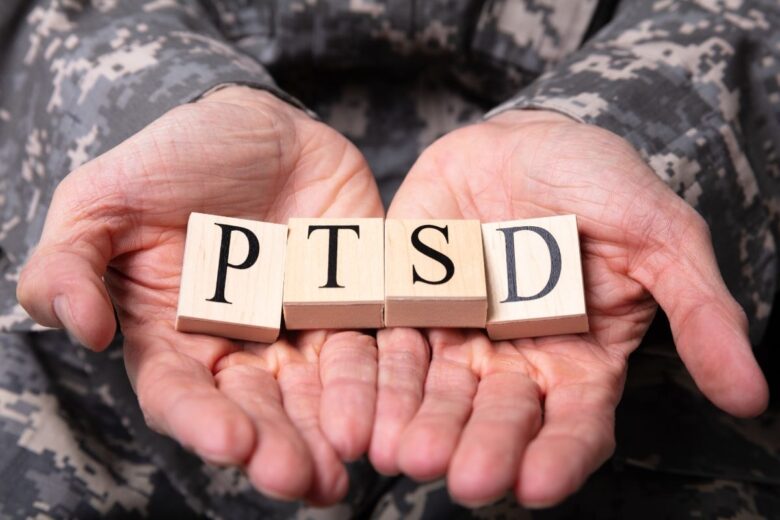Discovering the right PTSD Treatment in San Diego can be a turning point for veterans. The silent wounds of war often burden those who served even more than the visible ones. The nation honors duty and sacrifice, but the personal struggles of readjustment can leave veterans feeling alone. Post-Traumatic Stress Disorder (PTSD) alters emotions, clouds memory, and affects physical health, yet modern therapies are renewing the spirit of veterans throughout San Diego.
Understanding PTSD in Veterans
PTSD can develop after the mind is confronted with extreme stress. For service members, triggers frequently appear in combat, harrowing missions, or scenes of injury and loss. Veterans may experience:
- Flashbacks and vivid nightmares
- Heightened anxiety or irritability
- Difficulty sleeping or concentrating
- Avoidance of reminders linked to trauma
- Emotional numbness or withdrawal from loved ones
These reactions disrupt everyday functioning and may lead to depression, substance abuse, or loneliness. Accepting PTSD as a genuine health issue is the first move toward recovery, and today, more veterans are seeking formal, supportive treatment.
Why San Diego Is a Hub for Veteran PTSD Treatment
San Diego hosts one of the largest military and veteran populations in the U.S. Its bases, VA hospitals, and private clinics create a protective blanket of care that wraps not only active-duty members but also their families. There’s a one-stop shop feel for mental health support, and that’s a big win for any veteran dealing with PTSD.
Veterans in the region enjoy:
- Proven Therapies in One Place: Methods like CBT and EMDR have strong science behind them. Veterans have the comfort of knowing that the care they get isn’t just good intentions; it’s good results.
- Trauma-Savvy Providers: A lot of the staff have specific training in military trauma, making the care feel personal and relatable.
- Brotherhood in the Room: Group therapy pairs a vet with someone who’s felt the same sand between their boots. That shared space helps break down barriers.
- Whole-Person Focus: Beyond talk therapy, programs deliver fitness, mindfulness, and alternative therapies. It’s a clear nod that service-related recovery isn’t just mental; it’s physical, too.
The Role of Therapy in Healing
Psychotherapy stands as the foundation of any solid PTSD treatment. Each soldier’s timeline of recovery is different, yet certain therapies have consistently scored big.
1. Cognitive Behavioral Therapy (CBT)
CBT takes a veteran’s tunnel-vision, negative thoughts, and flips them. The goal isn’t to forget the past, but to change the meaning it holds today. Veterans learn fresh ways to respond to triggers, gradually grabbing back control of their lives one thought at a time.
2. Prolonged Exposure Therapy
Prolonged Exposure Therapy guides veterans to revisit tough memories in a safe space. Step by step, it helps people face what they’ve been avoiding. By doing this repeatedly, fear fades, and everyday life gets a little easier.
3. Eye Movement Desensitization and Reprocessing (EMDR)
EMDR shifts attention to eye movements while veterans think about a trauma. This simple technique quiets the mind and painful memories. Many leave sessions with fewer flashbacks and a clearer, calmer head.
4. Group Therapy and Peer Support
Hearing another veteran’s story can change everything. In group circles, people realize they are not alone. Sharing, listening, and seeing others heal builds a strong sense of community and courage to keep moving forward.
The Importance of Early Intervention
Choosing help early stops PTSD from getting worse. It can save a veteran from added troubles like depression, drinking too much, or arguing with family. Those who talk to a counselor soon often heal faster and feel stronger more quickly.
The good news? More veterans now say that getting mental health help takes courage, not weakness. Talking to a professional today can lead to brighter tomorrows.
Family Comes First in Healing
PTSD doesn’t choose one person to hurt—it spreads to spouses, kids, and siblings, too. In San Diego, facilities make it a priority to draw in anyone who shares a home with a veteran. Through education sessions, one-on-one talks, and peer support circles, families learn what the veteran is feeling and why. When a spouse knows the triggers, a ten-year-old knows what to expect the morning after a rough night, and Grandma learns phrases that promise support rather than confusion, the family builds a shared toolbox. That toolbox is what makes future bumps in the road easier to handle. When daylight returns, the whole family is more ready to move into the next day together.
Healing Through Lifestyle and Balance
Standard talk therapy is the starting line; San Diego programs then reroute runners toward a healthy lifestyle. They teach:
- Mindfulness and Meditation: 15 minutes of focus and quiet each day, trained to dial down the panic button in your brain.
- Fitness Programs: Search for a class in yoga, kickboxing, or cycling. When warriors move their bodies, endorphins flood in, and anxiety levels tumble.
- Equine and Art Therapy: Paint a feeling, or bond with a horse. Movement and color pull thoughts outside the mind before they grow too heavy.
- Nutrition and Sleep Training: Some shiny kale or quiet night, it all stacks up to give the brain a platform to climb up and heal.
Using therapy and lifestyle together often seals a more lasting change.
Voices of Change
Stories heard today were once considered impossible. A veteran who struggled to leave home is now comfortably running training for new hires. Another found his daughter waiting, proud of an upgraded breakfast he learned to make. They all pointed back to San Diego and the programs that guided each step. They remind the next newcomer that change is hard, but it becomes ordinary, and that ordinary grows into a new, hopeful life.
Every healing journey looks different, but they all share one starting point: the brave moment when someone decides to reach out for help.
Let’s Talk About It
For too long, veterans have stayed silent about what they carry, worried they might be judged. In San Diego, that’s starting to change. Local campaigns and peer-support groups are creating safe spaces where stories are heard—not judged.
When PTSD gets talked about openly and the range of proven treatments takes the spotlight, the message is clear: you can take back control of your life.
Your Next Step
PTSD isn’t cured overnight; it’s a step-by-step journey. Here in San Diego, veterans are leaning on cutting-edge therapies, strong peer circles, and whole-person care to show that real change happens one day at a time.
If you or someone you care about is looking for sound PTSD Treatment in San Diego, begin the conversation with a therapist skilled in trauma care. It might feel like a big leap, but it’s the step that often sets positive change in motion.
The Mental Health Center of San Diego is a go-to spot, providing proven care with kindness for veterans who are ready to regain hope and write the next chapter of their lives.




